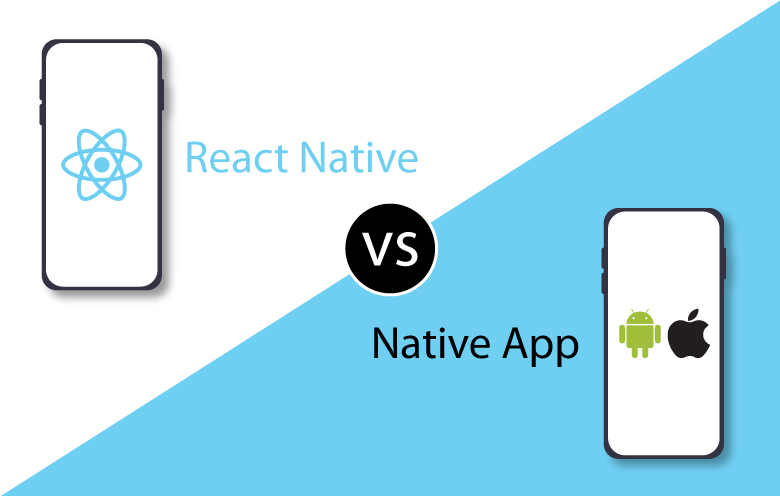React Native is a JavaScript library given ReactJS, which we use to construct portable applications utilizing iOS and Android stages. The upside of React Native is that a solitary code permits you to make an application on the double for two frameworks, iOS, and Android. This is appropriate for little applications or MVPs. React Native is a JavaScript stage that permits engineers to compose constant, Native-looking Android portable application improvements. It utilizes Facebook’s JavaScript libraries to make UIs, however rather than focusing on programs, it targets versatility. Facebook designers created React Native in 2015. The application speeds up and brings down the expenses of creating portable applications.
Reasons, why business Chooses React Native App Development Services are
- Code Reusability
- Native Look and Feel
- Live Reload
- UI Focused
- Cost-Efficiency
- Third-Party Plugins
- Large Community Supports
Why Choose React Native?
React Native is for the most part founded on JavaScript, a site improvement innovation. Thus, engineers who work on JavaScript can undoubtedly foster portable applications utilizing React Native. This recoveries time as well as disposes of the requirement for designers to learn complex dialects like Objective-C and Java to create an application.
Moreover, as JavaScript parts depend on iOS and Android parts, planners don’t have to make the same application again for another stage. All things considered, React Native versatile application improvement structure is a shared benefit for organizations with regards to saving time, exertion, and cash.
What are the Main Pros and Cons of React Native?
Pros of React Native
The main advantage is the speed of conveyance. A few applications that we produce are now accessible following three months, and such tasks we executed in Winklix. In the organization, you can find a ton of libraries that permit you to work on the most common way of building applications. React Native is at present famous and numerous engineers code in it.
Be that as it may, the most essential advantage is the practically synchronous conveyance of uses for two stages, IOS and Android, so the undertaking is done rapidly in contrast with Native methods.
Assuming you choose to execute your application in React Native innovation, you can depend on the way that you will track down numerous experts available. This isn’t a specialty innovation, and a broad online React Native area offers its help.
According to the designers’ perspective, it is quite simple to change from React to React Native, on account of which engineers who up until this point have not chipped away at portable can before long extend their abilities in the space of versatile application improvement.
Cons of React Native
React Native application is inadequately adaptable, and it won’t be a productive answer for tremendous tasks. On account of a longing to present usefulness, which will just work on one of two portable stages, for example, iOS, issues will be changed in the Native code of the application, which will require extremely senior information.
Winklix had a test in one of the tasks wherein our client needed to carry out the usefulness, permitting the application’s call. We figured out how to adapt to this undertaking, and Senior Kotlin Engineer joined the group and composed Natively a section that will empower you to settle on a decision and wake up the telephone. Eventually, we had the option to work on the presentation of the whole application. Winklix informed the client that we don’t work in Native advances (Kotlin and Java). We recommended to the client another arrangement since it’s predictable with our qualities, one of which is straightforwardness.
How does React Native work?
React Native Works on Three Threads
- UI Thread
- Shadow Thread
- JavaScript Thread
Most importantly, a design is made involving the codes in the JavaScript Thread. This format computation is then offloaded to the shadow Thread which develops a tree of this design utilizing a format motor called Yoga.
The corReactence between the two strings occurs through a React Native extension which serializes the information in JSON configuration and moves it to the UI (fundamental)Thread subsequent to getting the delivered markup from Yoga.
The principal string then, at that point, delivers the UI after deserialization and finishes the planning from the program to React Native.
How is React Native different from React?
Native React utilizes a comparative language structure and improvement mentality to React. They share indistinguishable ideas through very indistinguishable yet aren’t complete Twins. There are additionally tremendous contrasts among target stages: programs and cell phones on the double. React is a lean library that requires the cooperation of innovation designers. React Native, notwithstanding, is a completely useful structure with all modules vital for building a portable application with no limitation on outside library usefulness.



